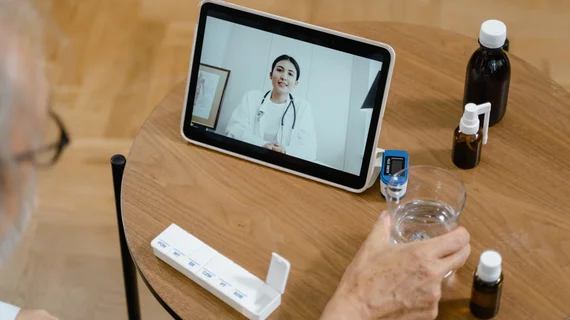Amazon rolls out proactive virtual care for undermanaged chronic conditions
Next time you browse Amazon for a health-related product, don’t be surprised when you get prompted to consider consulting with a personal care team.
The proposed care team will have expertise in one or more chronic conditions that you have or may have, based on your Amazon searches. The team will stand ready to consult with you remotely.
And Amazon will let you quickly check if your employer or insurer will cover the service.
The online retail giant announced the new service, “Health Condition Programs,” Jan. 8.
The company says it’s partnering with digital health companies to put these services in front of healthcare consumers because many don’t know such services exist. Others may have heard of digital health but don’t know they’re eligible through their employer or insurer.
And some may have a chronic but hidden health condition.
Among the digital health companies signing on with Amazon so far is San Fran-based Omada Health. Omada bills itself as a “digital-first” provider of chronic care services that’s set up to improve members’ health status while reducing the cost of care provision.
Omada says it has almost 2,000 customers representing more than 20 million individuals who may be eligible to access its offerings through Amazon Health Condition Programs.
The chronic conditions it’s initially spotlighting are prediabetes, diabetes and hypertension.
“More than 38 million Americans live with diabetes and 98 million U.S. adults—1 in 3—have prediabetes,” the company says in its announcement. “This new enrollment pathway will help reach the one out of every 10 commercially insured people in the U.S. who have access to enroll in Omada but may not be aware.”
Omada says that, from 2019 to 2022, participants in its diabetes service cut their A1C by 2%, with 76% of the field achieving Omada’s A1C reduction goals.
Amazon VP Aaron Martin says the aim of Health Condition Programs is making it easier to discover products, services and professionals that can help people get and stay healthy.
“Many aren’t aware of the healthcare benefits they are eligible for, that are typically no cost or subsidized by their employer or insurance plan,” Martin adds. “When customers are shopping for health-related products on Amazon, we can surface these benefits to provide even more support in improving their health, at no additional cost.”
The Amazon Health Condition Programs start page is here, Omada announcement here.

